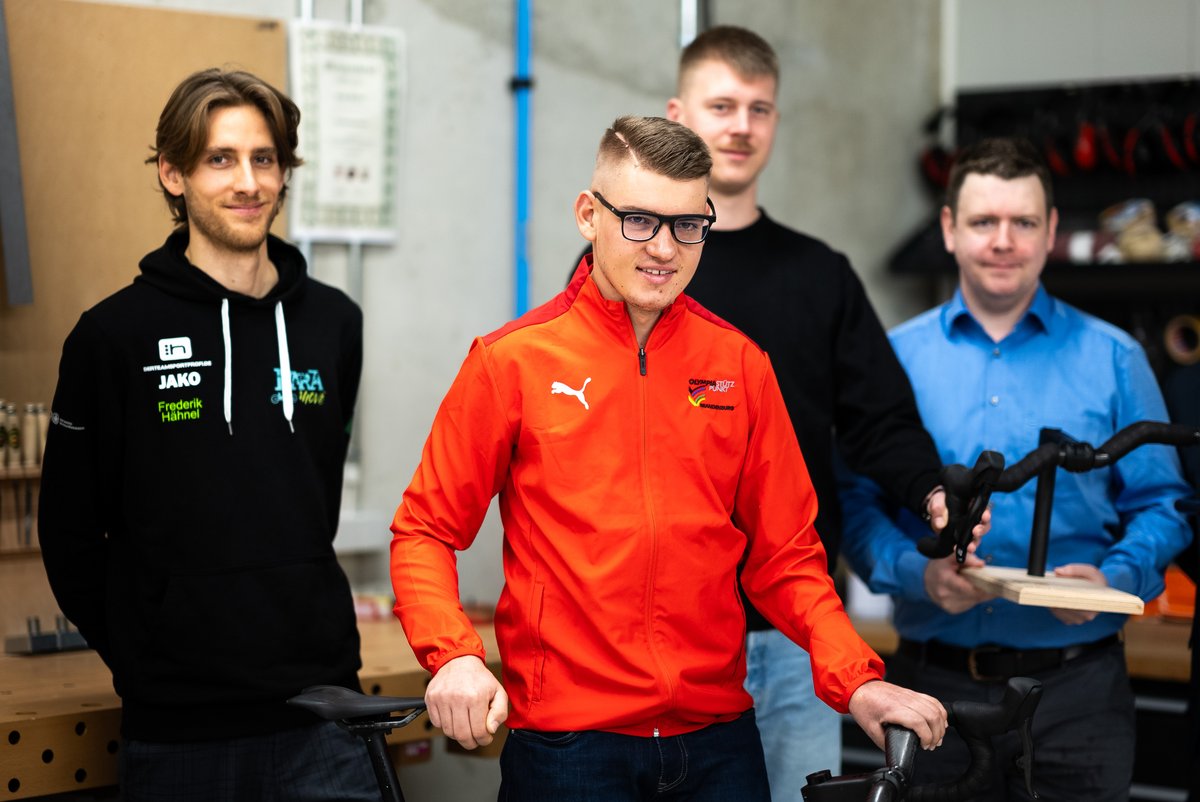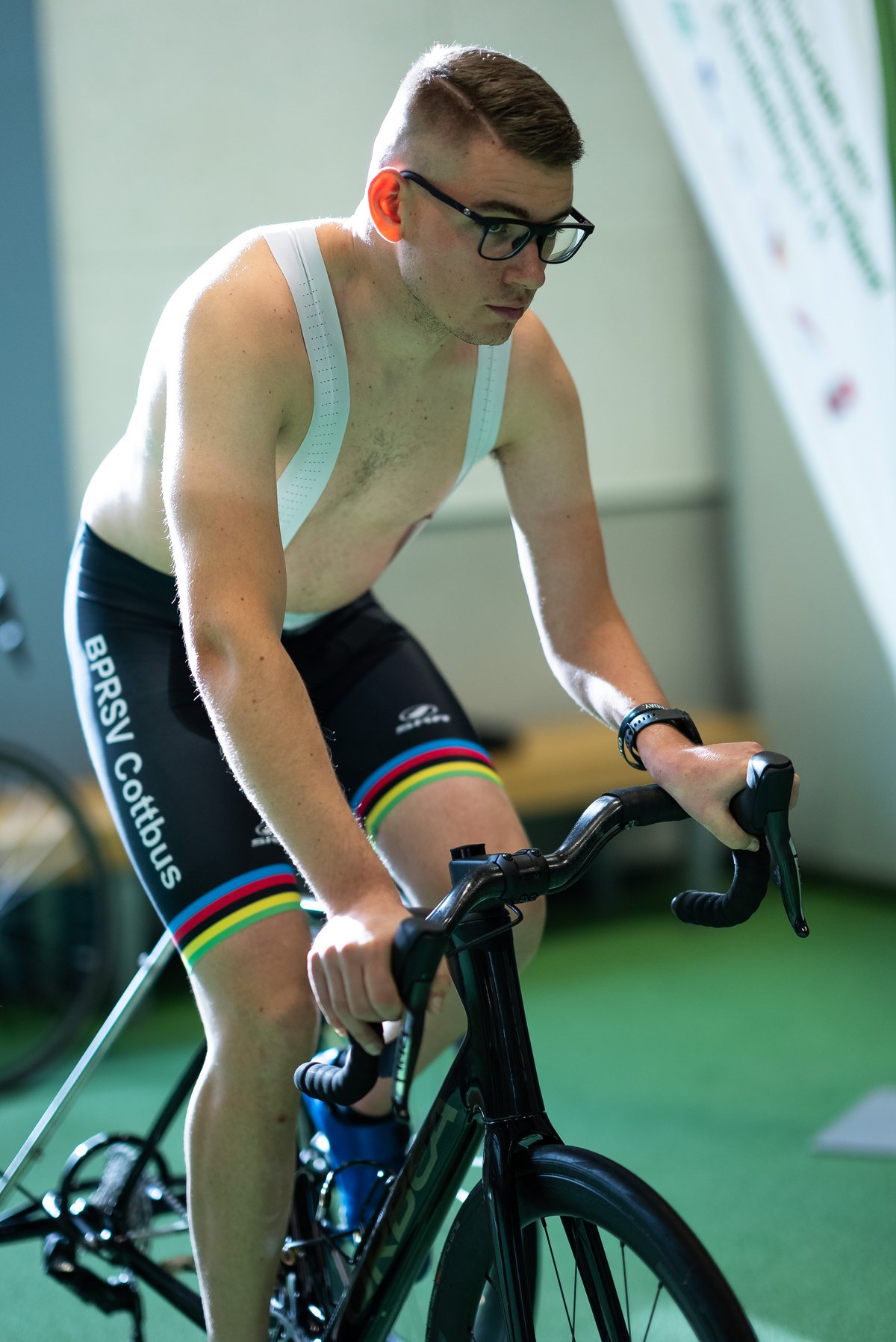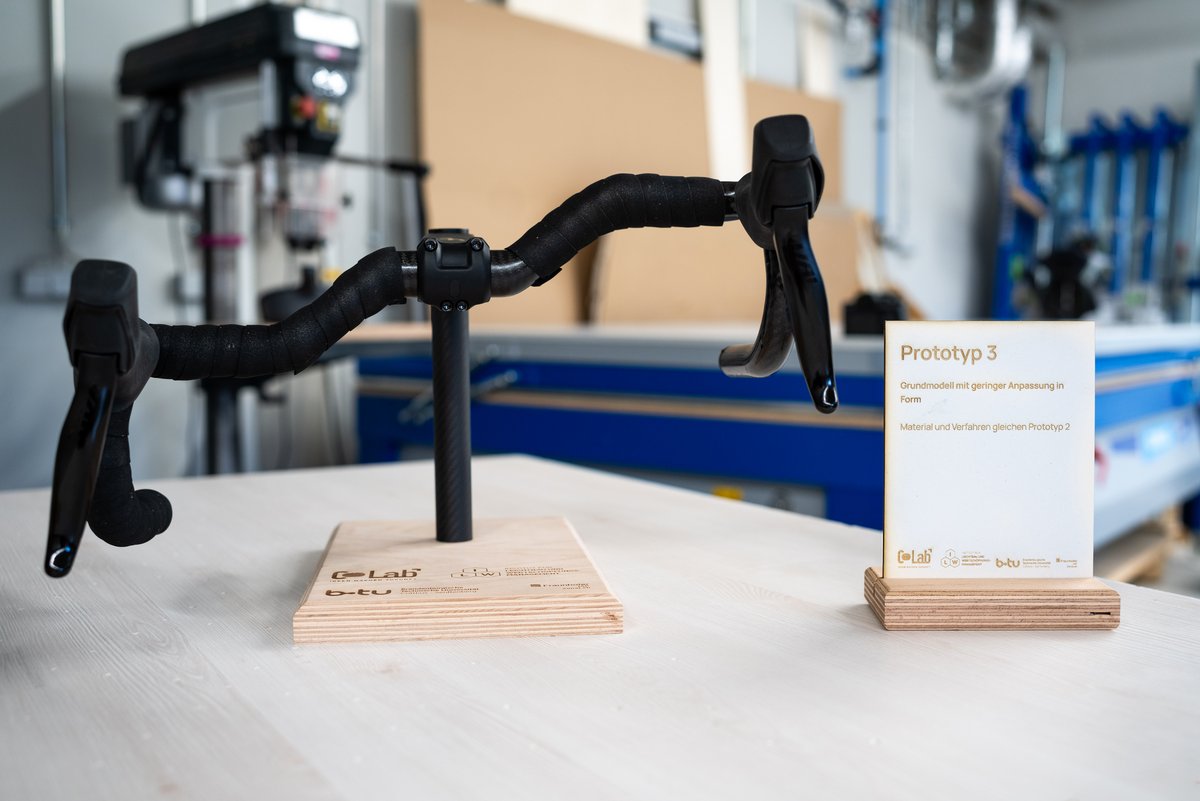High-tech from Cottbus for the Paralympics in Paris
Maximilian Jäger from Cottbus is a paracyclist and multiple medal winner. The 24-year-old is now a member of Team Germany for the 2024 Paralympics in Paris. His chances of taking part in the coveted Paralympic Games are very good - and so he is training hard and making the most of his opportunities for top performance and optimum preparation. He is supported by Frederik Hähnel, Para cycling instructor coach from the Brandenburg Disabled Sports Association.
FrederikHähnel also had the idea of optimizing the handlebars for cyclists and turned to the CreativeOpenLab (COLab) at BTU Cottbus-Senftenberg. He says: "What we needed was an individual racing bike handlebar that was adapted to Maximilian's position and posture and was as light as possible, yet safe and stable. This is the only way we can make the best possible use of our exceptional athlete's potential. It was also important to us that Maximilian would get on well with it. You can't get something like this "off the shelf". This requires know-how and development work - we hoped that the COLab could support us in this."
The COLab, the makerspace on the main campus of BTU Cottbus-Senftenberg, not only acts as a mediator between science, business, start-ups and social institutions, but also actively strengthens the Lusatian community in particular. The machinery is available to researchers and start-ups and offers all Lusatians easy access to modern technology and expertise. The COLab team sees itself as an incubator for innovative and individual projects that are implemented together with the regional population. In this context, the Full-time Vice President for Research and Transfer and Strategic Project Manager of COLab Prof. Dr.-Ing. habil. Michael Hübner: "For us, knowledge transfer is more than just communication. It's about accompanying the path from idea to meaningful solution, making broader use of the potential of applied research and creating a platform on which every creative mind can realize their ideas. We don't just want to network, we want to actively shape and bring technological diversity to life for everyone."
Dr.-Ing. Holger Seidlitz, who provided scientific support for the project with his Chair of Polymer-based Lightweight Construction and the ZenaLeb (Center for Sustainable Lightweight Technologies) project group at the Fraunhofer Institute for Applied Polymer Research IAP, is delighted with the successful collaboration: "The optimally adapted bicycle handlebars are a very good example of what is possible in lightweight construction today. It is the result of intensive cross-sectional cooperation: starting with the sports physiological investigations, the design and layout of the lightweight handlebars based on these, through to the production of the complex geometry including the dismountable tool concept with subsequent testing. However, the project also shows that different perspectives and approaches can lead to more creativity and unusual solutions. The joint development work and cooperation once again underlines the transfer concept, which is practiced at the BTU in a constructive cooperation".
The handlebars designed for the special requirements not only mark a milestone in para-cycling, but also a significant advance in individual sports equipment. It was created in various development phases and numerous tests, which required close and constructive coordination between the partners. Only in this way was it possible to combine scientific, practice-oriented know-how with specific sporting requirements to produce a successful, highly individual and forward-looking result that opens up new perspectives for cycling. The sports handlebar complies with the standards set for para-cycling (UCI), for which admission is currently being arranged via the authorized independent testing bodies in Australia and Switzerland.
Press contacts
Ilka Seer, Brandenburg University of Technology Cottbus-Senftenberg,
Press Officer and Head of Corporate Identity Department,
T +49 (0)355 69 3612, E ilka.seer(at)b-tu.de www.b-tu.de
Susann Peplowsky, Brandenburg University of Technology Cottbus-Senftenberg,
COLab Coordination Program Development,
T +49 (0)355 69 4392, E susann.peplowsky(at)b-tu.de
Luise Eckert, Brandenburg University of Technology Cottbus-Senftenberg,
Media Design and Public Relations, Institute for Lightweight Construction and Value Creation Management,
T +49 (0)355 69 6981, Luise.Eckert(at)b-tu.de
Luisa Wieczorke, Behinderten- und Rehabilitationssportverband Brandenburg e.V.,
Coordinator for junior sports and public relations,
Mobile: 0151 51563423, E wieczorke(at)bsbrandenburg.de



